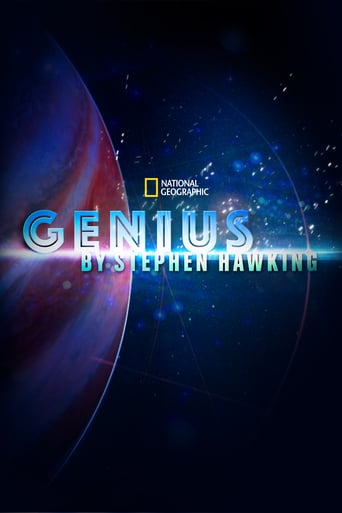

I was able to see the first and second episodes on PBS last night. I am a scientist and have always been interested in these subjects. I found them interesting but was a bit put off by the technique used.In each case three "ordinary people" are chosen to solve riddles presented by Hawking (remotely) in an overall effort for him to show that ordinary people can think like a genius. However as the programming moved along and the "ordinary people" began to analyze things in a quick manner to demonstrate the principle involved, it was clear that these "ordinary people" had received lots of coaching. In fact at times it appeared that their discussions might have been scripted.Regardless, the first episode covers "Time Travel", is it possible? In it they conclude that travel back in time is not possible, everything about it would violate the laws of physics. What about travel to a future time? Well that, in theory, is not only possible but happens in practice. Since space and time are "warped" by gravity, people and things nearer massive objects have time slowed down for them thus when they re-join people farther from the massive object they are in "the future" relative to their own time. This was demonstrated by transporting a Cesium atomic clock to the top of a mountain and leaving its exact twin at a lower level. However the change in time, a few nanoseconds per day, is so small the "time travel" could never be noticed. However if one were to travel to the center of our galaxy, about 25,000 light-years away, and orbit the super massive black hole, then return later, they would return to a time some years in the future. Clearly there is no way for a person to travel to a point that far away and, even if they did could not survive the gravity near the black hole.So the only scientific conclusion is "time travel" shall always remain an interesting subject for science fiction but will never be possible for humans.The second episode related to the possibility of intelligent life elsewhere in the universe and includes a discussion of the SETI efforts over the past 30 years or so. A much better program for this is "The Search for Life: The Drake Equation" (2010). In the simplistic approach here Hawking concludes that there must be intelligent life elsewhere because the universe is so vast with so many stars and planets around many of them. However it is also possible that Earth is alone in that. It is a question we will likely never answer because if intelligent life exists elsewhere it is too far away to ever contact them.Edit: I decided to skip the rest of the episodes, they are done in an entertainment style, not really targeted for trained scientists. I don't care for the "three ordinary people" learning to think like geniuses focus of the series.
... View More